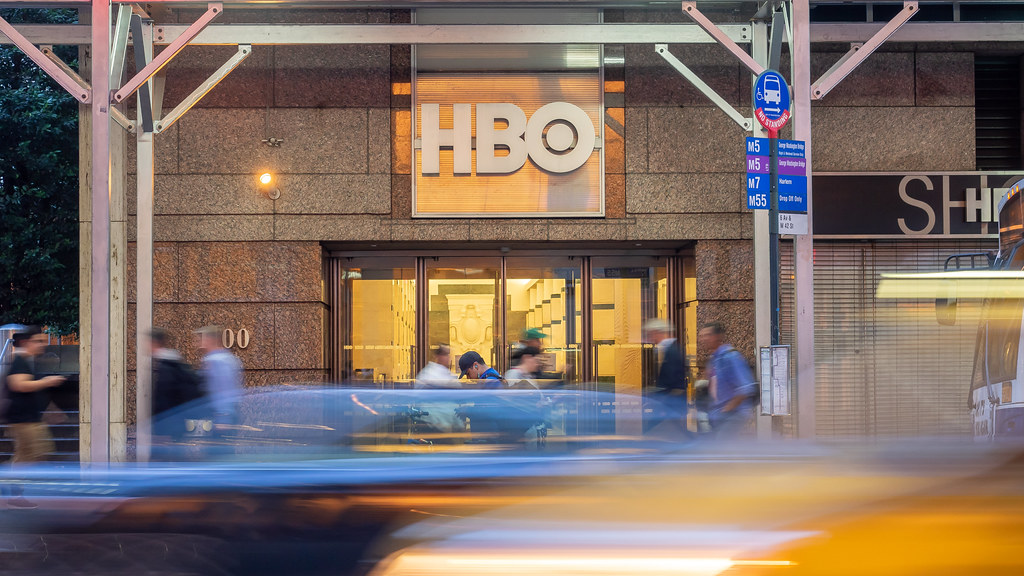“Driftwood” cancelation and HBO Max cartoon removals
Earlier this month, HBO Max added animated feature film “Driftwood’’ to its growing list of canceled and removed programming, a mere three months after its initial announcement.

“Driftwood” would have been Cartoon Network’s first original animated feature film created for HBO Max. The sci-fi adventure followed Clover, a mouse-like creature searching for a sustainable source of energy and freedom from an evil corporation in the titular lost city of Driftwood. Although it is currently unclear how much of the film was completed before its cancellation, crew members have expressed their mix of disappointment and hope for upcoming projects.
“Working on this was such a treat,” said Finn, a production manager at Cartoon Network, via Twitter (@Dhubetter). “The whole crew is amazing and we all were so excited to share this. Now, I’m just heartbroken that no one will see more than this poster.”
Storyboard artist Mason Alec emphasized the “Driftwood” team’s passion on Twitter.
“What an incredible team to be a part of,” Alec wrote. “‘Driftwood’ was such a game changer in terms of story and style. When everyone on the team loves the project, you know you’re making something truly special. The world deserves this movie, and Victor deserves to make it.”
Victor Courtright, “Driftwood”’s creator, faced another loss when his animated miniseries “Aquaman: King of Atlantis” was removed along with 35 other movies and TV shows mid-August. A shocking 25 out of the 36 removed programs were animated, including popular and critically acclaimed cartoons like “Infinity Train,” “Close Enough” and “Summer Camp Island.”
The removal came as a surprise to fans and showrunners alike. “Infinity Train’s” creator Owen Dennis “had no idea it was coming,” and suggests that the issue lies with the recent corporate merger between WarnerMedia and Discovery.
The two companies completed their merger in April of 2022 to form Warner Bros. Discovery Inc. David Zaslav, the newly merged company’s CEO, expressed a focus on profits for streaming after the cancellation of another HBO Max film, “Batgirl.” Zaslav claimed that WB Discovery higher-ups “looked hard at the direct-to-streaming business” and simply “can’t find an economic value for [‘Batgirl’].” This decision to only back high-budget feature films for theatrical release while scaling back on direct-to-HBO Max films placed an unfortunate target on “Driftwood” in its prompt cancellation.
For such a long-standing and highly anticipated DC property like “Batgirl” to be canceled, anxiety arose among audiences and all eyes were suddenly on HBO Max and other streaming platforms to await their next move. The WB Discovery merger only caused more confusion as people from both companies were potentially moved around, fired or quit. Netflix has also been facing scrutiny for recent cancellations such as “Bone,” the animated series based off of the widely loved comic book, which was canceled in April of 2022 following a major lay-off at Netflix Animated.
Several of HBO Max’s shows still had unreleased seasons, like “Summer Camp Island” and “OK K.O.! Let’s Be Heroes,” that Cartoon Network has assured fans will premiere on the channel. However, where the episodes will land after their initial premiere is uncertain.

Another question remains in the minds of many dedicated animation fans: Just why are so many of these cancellations and removals cartoons? According to CNBC, WB Discovery has “three main motivations behind the cuts: slashing costs, moving away from content aimed at kids and families and decluttering the service.”
Removing these properties would save WB Discovery tens of millions of dollars. Also according to CNBC, statements from HBO Max executives suggest that the service believes its children’s content is just not receiving enough viewership. As a result, a majority of content for kids and families will continue to be removed as HBO Max pulls in new programming, mostly reality TV, from its Discovery counterpart.
Although adult animated content exists on HBO Max, the animated medium is largely associated with children’s entertainment, and a quick browse through the list of removed programming reveals that a majority of the cartoons are rated for teen-and-under audiences. The statistics regarding low viewership for these properties that HBO Max refers to are currently unavailable to the public.
Confronted with all of this constantly changing information, new mergers, and fear of cancellations, fans and creators may be uncertain about the future of animation and streaming. The answer is still not clear, but wary optimism remains. “Infinity Train’s” Owen Dennis and “Gravity Falls’” Alex Hirsch have encouraged fans to still access the canceled properties however they can, whether through physical box sets or more seafaring means. While the ethics of film and TV piracy are another discussion, the fervor fans have for still supporting artists however they can has shown contradictory statistics to the ones WB Discovery suggests: “Infinity Train” has claimed four of the top eight purchased TV shows on iTunes as other canceled HBO Max properties climb the ranks of top purchased “Kids & Family” rankings.
“Amphibia’s” Matt Braly described his thoughts as a creator and showrunner via Twitter thread. “On a streaming service, because things are 1000x more competitive than linear, you can’t just do well anymore, or good. You have to do EXCEPTIONAL,” Braly wrote. “Your show has to spike and prove beyond a doubt that subscribers are hooked.”
The pressure of being an explosive financial success is often a struggle for showrunners that create animated content or art geared for education and children. The appeal of merchandise and toys may outshine an otherwise exceptional cartoon series. Still, financial success is not always tied to quality, and though HBO Max continues to punish its animated showrunners, the continued audience backlash against this decision shows that there is still hope for cartoons yet.

